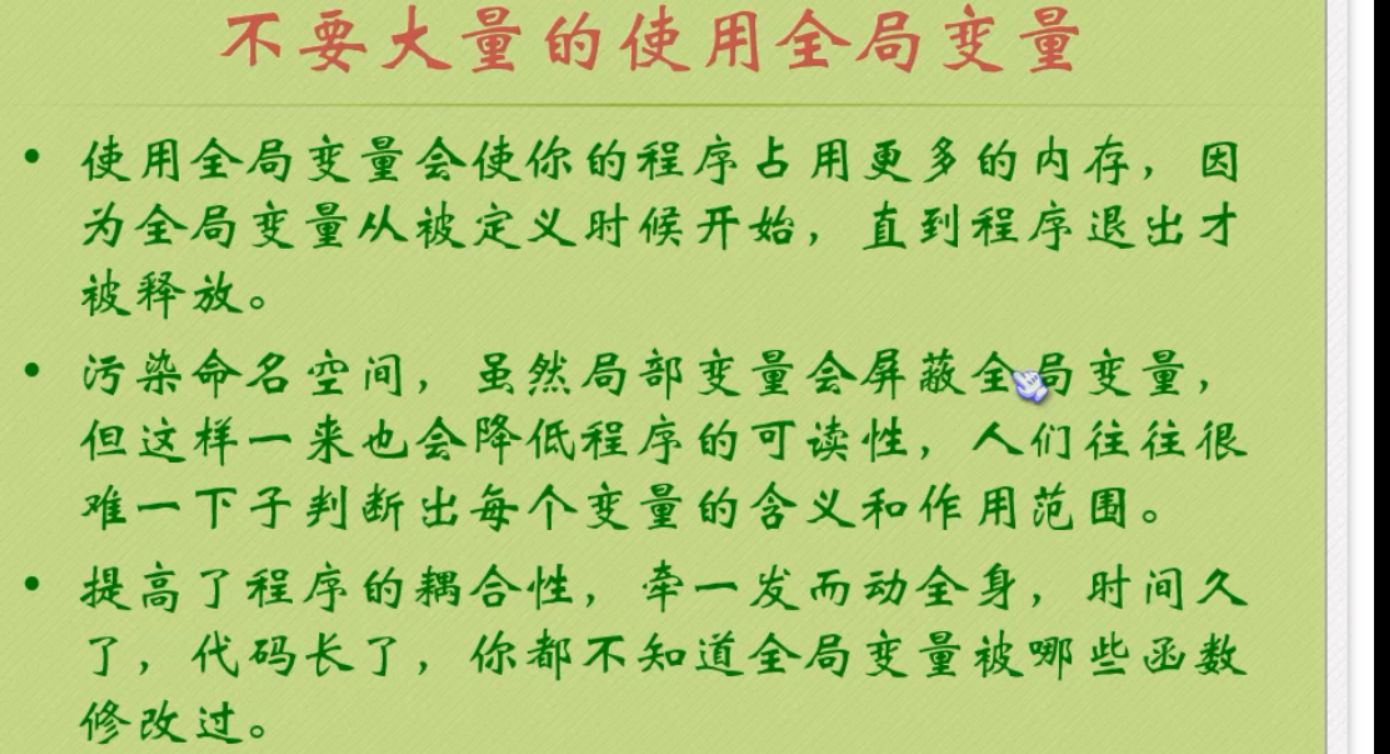#include <stdio.h>
int main()
{
int i = 520;
printf("before, i = %d
", i);
for (int i = 0; i < 10; i++)
{
printf("%d
", i);
}
printf("after, i = %d
", i);
return 0;
}

#include <stdio.h> void a(); void b(); void c(); int count; void a() { count++; } void b() { count++; } void c() { count++; } int main() { a(); b(); c(); b(); printf("被包了%d次 ", count); return 0; }
#include <stdio.h>
void func();
int a, b = 520;
void func()
{
int b;
a = 880;
b = 120;
printf("In func, a = %d, b = %d
", a, b);
}
int main()
{
printf("In main, a = %d, b = %d
", a, b);
func();
printf("In main, a = %d, b = %d
", a, b);
return 0;
}
extern关键字报错;
#include <stdio.h>
void func();
void func()
{
extern count;
count++;
}
int count = 0;
int main()
{
func();
printf("%d
", count);
return 0;
}

